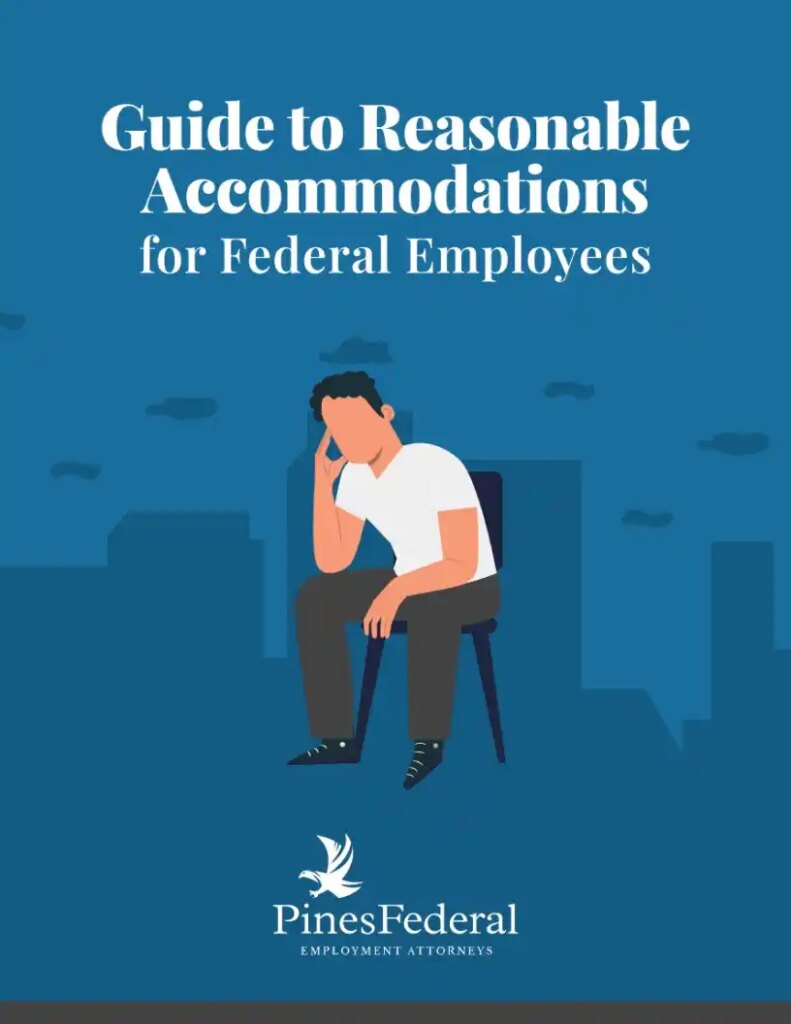
Although it only recently became a formal psychological disorder, autism is rapidly becoming a pervasive mental condition. The most recent statistics from the U.S. Centers for Disease Control and Prevention report the prevalence of autism at 2.8% of children, up from 2.3% only five years ago. Because of the fairly recent discovery of the disease, many adults are only now receiving autism diagnoses. If you are a federal employee who has recently received an autism diagnosis, you might be wondering whether there are any autism reasonable accommodations for federal employees.
Let’s be clear: there are many possible reasonable accommodations for autism. In this piece, we break down why autism qualifies you for reasonable accommodations under the law. We also discuss the possible forms of reasonable accommodations you can receive to help you work with your condition. Contact one of our federal employee accommodations lawyers today for more detailed assistance. We can guide you through the process and get you the needed assistance. Call us at (800) 801-0598 or fill out our online form today to get started.
Is Autism a Disability Under the ADA?
Yes. Together with the Rehabilitation Act of 1973, the Americans with Disabilities Act (ADA) establishes the right to reasonable accommodation in the federal workplace. The definition of disability lies in the ADA and its recent amendments. Congress intentionally made the definition of disability broad to include virtually every kind of medical and mental condition. Disability under the ADA is “a physical or mental impairment that substantially limits one or more major life activities.”
Naturally, people ask, What are major life activities? Almost everything.
Major life activities extend to:
- Talking,
- Moving,
- Working,
- Dressing yourself,
- Breathing,
- Thinking,
- Concentrating,
- Interacting with others, and
- Learning.
For the overwhelming majority of individuals with autism, the disease affects at least one of these major life activities and is, therefore, a disability. It’s also worth mentioning that the ADA also considers you as an individual with a disability if other people regard you as having an impairment.
Obtaining Autism Work Accommodations
Because autism is a disability under the ADA, your next step is to request a reasonable accommodation. The U.S. EEOC has repeatedly ruled that there are no “magic words” to request a reasonable accommodation. All you have to do to make a request is to tell a manager or supervisor that you’re having work difficulties because of your condition. Practically speaking, it’s best to make a written request. A paper trail helps ensure your request reaches the right decision-makers and receives the necessary attention. Most employers have specific guidelines they want their employees to follow, so ensure you understand and follow the process. Once you have a formal written request assembled, run over it with a qualified legal professional before sending it to your boss or human resources department. While these steps take time, they’ll save you frustration.
[DOWNLOAD] Reasonable Accommodations for Federal Employees

The RA Decision-Making Process
After you submit your initial request, your employer will likely ask you for substantiating medical information. This documentation plays a key role in showing that your autism constitutes a disability that receives protection under the law. Ideally, you should provide a doctor’s note that discusses your condition and how it affects your ability to work. The more detail and specificity your doctor can provide, the better. Providing a comprehensive medical report makes it extremely difficult for the agency to reject your request.
The letter should also recommend potential reasonable accommodations that would allow you to perform your job. Many employees slip up by letting the employer pick a reasonable accommodation that it feels is suitable for the employee. Don’t make this mistake. Instead, be clear about the specific accommodations you need. Then, connect those accommodations with your workplace limitations and demonstrate how they would allow you to perform your job.
After submitting your request, your employer should contact you to begin an interactive discussion. During this discussion, you and your employer review the ideal reasonable accommodations and dialogue for a mutually agreeable outcome. Sometimes, your employer may immediately grant your requested accommodation. Other times, they may propose an alternative. Be flexible during this process, but simultaneously, you must stand your ground where necessary to get the accommodation you genuinely need.
Unfortunately, employers sometimes ignore reasonable accommodation requests. Or they fail to engage in an interactive process and make a unilateral decision. If this happens, contact a dedicated federal employment attorney. They can help you break through the obstacles posed by slippery, incompetent, or unethical employers.
Examples of Workplace Accommodations for Autism
There are countless types of accommodations for autism in the workplace. Fortunately, the law places very few limits on the types of accommodations you can request.
The only two requirements are:
- The accommodation helps you perform your job, and
- The accommodation doesn’t cause an undue hardship on your employer.
Given the massive size of most federal agencies, it’s incredibly difficult for employers to claim undue hardship successfully. Let’s review some potential examples of workplace accommodations for autism.
These include:
- Changes to your environment. Examples include providing noise-canceling earbuds or headphones to avoid distractions or changing the office’s lighting. Another example might be a move to a quiet area of the building or a private office.
- Changes to your work schedule. Many people with autism can become overwhelmed due to overstimulation. Requesting daily breaks, telework days, or a fully remote work schedule can meet these needs.
- Changes to your work tasks. In some cases, it’s possible to make changes to your job duties. For example, you might be able to substitute a problematic task for something that meets your needs.
Sometimes, you can even request a change to a different position. However, you typically have to exhaust accommodation options in your current position.
Looking for Accommodations for Autism in the Workplace? Trust Pines Federal to Help You Obtain the Support You Need
With the right legal help, requesting and obtaining the accommodation you deserve becomes much more manageable. Pines Federal is standing by to guide you on your quest for reasonable accommodation. We’re ready to apply our legal skills on your behalf so that you can get the support you need. We’ve obtained outstanding results for many of our clients in the past. Just take a look at our testimonials, reviews, or case results page. Then consult with Pines Federal to start your journey towards justice. Reach out to us online or call us at (800) 801-0598 today for a consultation.